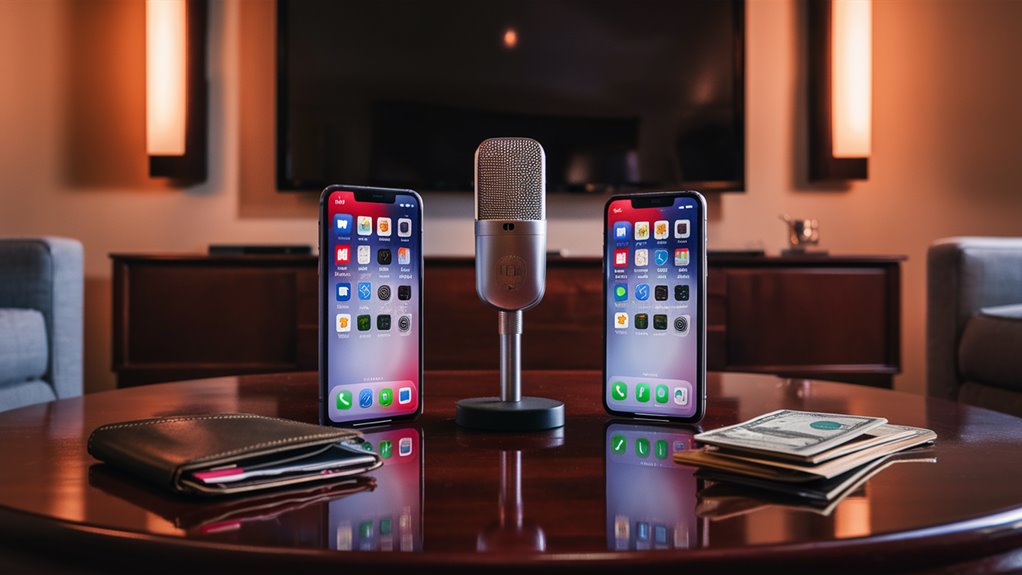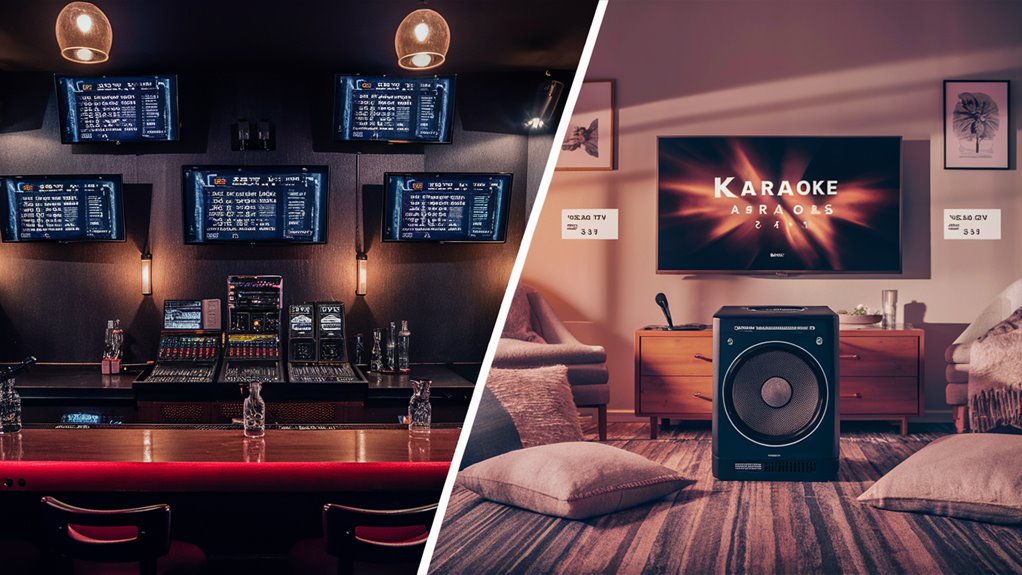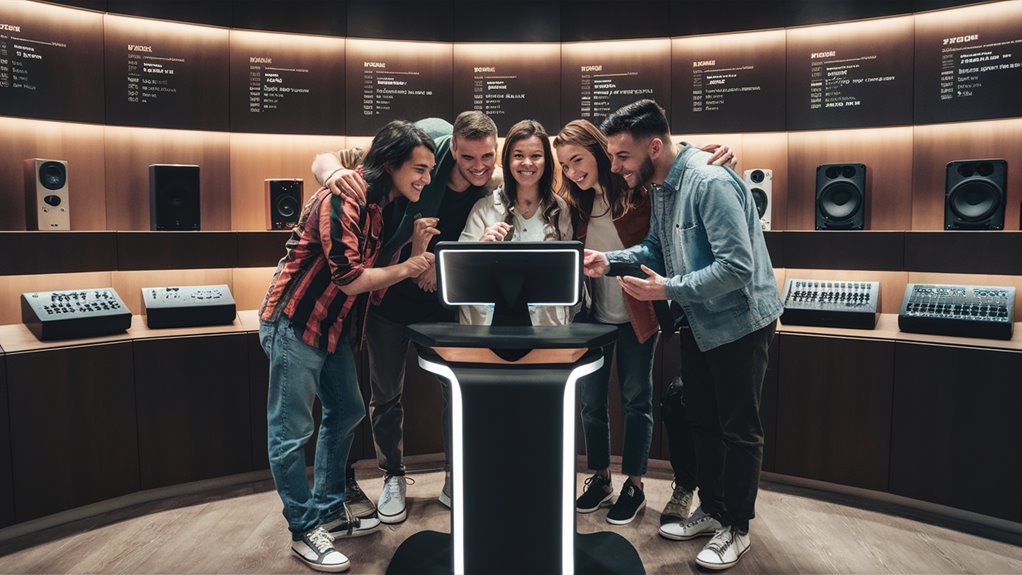
How to Pick the Best Karaoke Service for Your Money

Choosing the best karaoke service involves evaluating your specific needs and budget. Begin by understanding your financial constraints and comparing what each service offers:
Equipment and Service Types
- Full Equipment Rental: $100-300 per event click here
- Subscription Services: $10-50 a month
- Software Solutions: $300-1000 once
Key Things to Think About
Where You Set Up
- Room size and acoustics
- Sound system compatibility
- Requirements for a PA system
- Top microphone quality
Tech Details
- Internet speed requirements
- Size and variety of song catalog
- Licensing fees and legal compliance
- Compatibility with your hardware
- Standards of sound quality
How Cost-Efficient it is
- Frequency of use
- Value over time
- Maintenance costs
- Support and updates for software
- Options to expand song choices
Weigh these considerations against your budget to secure the best karaoke deal without sacrificing quality. Consider potential upgrades and expansion when making a decision.
Knowing Your Karaoke Needs
Know Your Karaoke Needs: A Full Guide
Checking How Much You Will Use It
Frequency of use is crucial when choosing karaoke services.
If you host regular events, conduct karaoke nights at home, or manage event-hosting venues, your usage patterns influence choices on budget and necessary equipment.
Reviewing Tech Setup
Equipment fit is critical for a successful karaoke setup.
Your existing sound system, high-end or basic, determines additional needs.
A thorough tech review ensures smooth operation and superior sound quality.
Thinking of Where and Who For
Performance location and audience significantly impact system selection.
Home setups work well with standard songs and controls, while venues with larger audiences require:
- Professional equipment
- Extensive music catalogs
- Frequent song updates
- Handling multiple users
Rights and Rules to Follow
Venues offering karaoke for profit must adhere to specific licensing regulations.
Key considerations include:
- Rights for public performance
- Music licensing fees
- Permits for entertainment
- Compliance with copyright laws
Understanding these regulations helps avoid legal issues and align operations with the law.
Well-Known Karaoke Service Types
Full Guide to Popular Karaoke Services

Pro Streaming Choices
Subscription karaoke streaming has transformed home entertainment. Top providers like Karafun and Singstrix offer vast song selections digitally for $10-30 monthly.
These platforms provide regular song updates, display lyrics in HD, and conveniently integrate with mobile devices, but require personal equipment.
Pro Equipment to Rent
Standard karaoke equipment rentals remain popular for events, costing $100-300 per occasion. These packages include professional sound systems, wireless microphones, and large song collections.
This option ensures high-quality sound without a long-term equipment commitment.
All-in-One Karaoke Hosts
Professional karaoke hosts offer complete entertainment packages, priced from $200-500 per event. These services include skilled KJs (karaoke jockeys), advanced equipment, and extensive song choices.
Ideal for corporate events, weddings, and large gatherings requiring seamless execution.
Fun Apps to Have
Digital karaoke apps offer the simplest entry to karaoke entertainment. Popular platforms like Smule and StarMaker provide free access with in-app purchases for enhanced features.
While great for casual singing and sharing, these apps may lack the professional features needed for commercial use.
Software for Serious Use
Professional karaoke software licenses cater to dedicated singers, with one-time costs ranging from $300-1000. These packages include commercial use rights, advanced mixing capabilities, and comprehensive song management tools, making them ideal for frequent hosts and entertainment venues.
Thinking of Costs and What You Get
Full Guide to What Karaoke Services Cost
Main Cost Points
Typical expenses for karaoke services range from $15 to $50 monthly, with per-song options at $1.50 to $3 per download.
The true value extends beyond price with essential features and capabilities.
Must-Have Feature Check
Song list diversity and frequent updates signify true value.
Superior sound quality and fast interfaces enhance the overall user experience.
Professional tools such as pitch adjustment, key changes, and voice isolation place some options in higher price ranges.
Tech Musts & Ways to Get
Tool requirements vary by service, with specifications for developers and compatible devices.
Offline access capability is crucial, as some services require perpetual internet connectivity.
Device compatibility and multi-platform support influence overall value.
Other Costs
Licensing fees for commercial use and enhanced hardware support may incur additional charges.
Combining equipment rental with software subscriptions can save costs for frequent users.
Free trials allow assessment of functionality and features.
Consider billing cycles and cancellation options to avoid unexpected charges.
Song catalog size, update frequency, and sound quality standards remain critical in evaluating service value.
Compare long-term costs against initial expenses when selecting a karaoke service.
Free vs Paid Choices
Free against Paid Karaoke: A Full Look
Understanding Free Karaoke Options
Free karaoke platforms like YouTube provide instant access to popular songs at no cost.
However, they come with significant limitations:
- Interruptive ads
- Inconsistent sound quality
- Limited song selection Quiet Karaoke: Options for Introverts Who Love to Sing
- Availability issues
Paid Pro Services
Paid karaoke services offer enhanced features:
- High-definition sound
- Ad-free experience
- Continuous song additions


